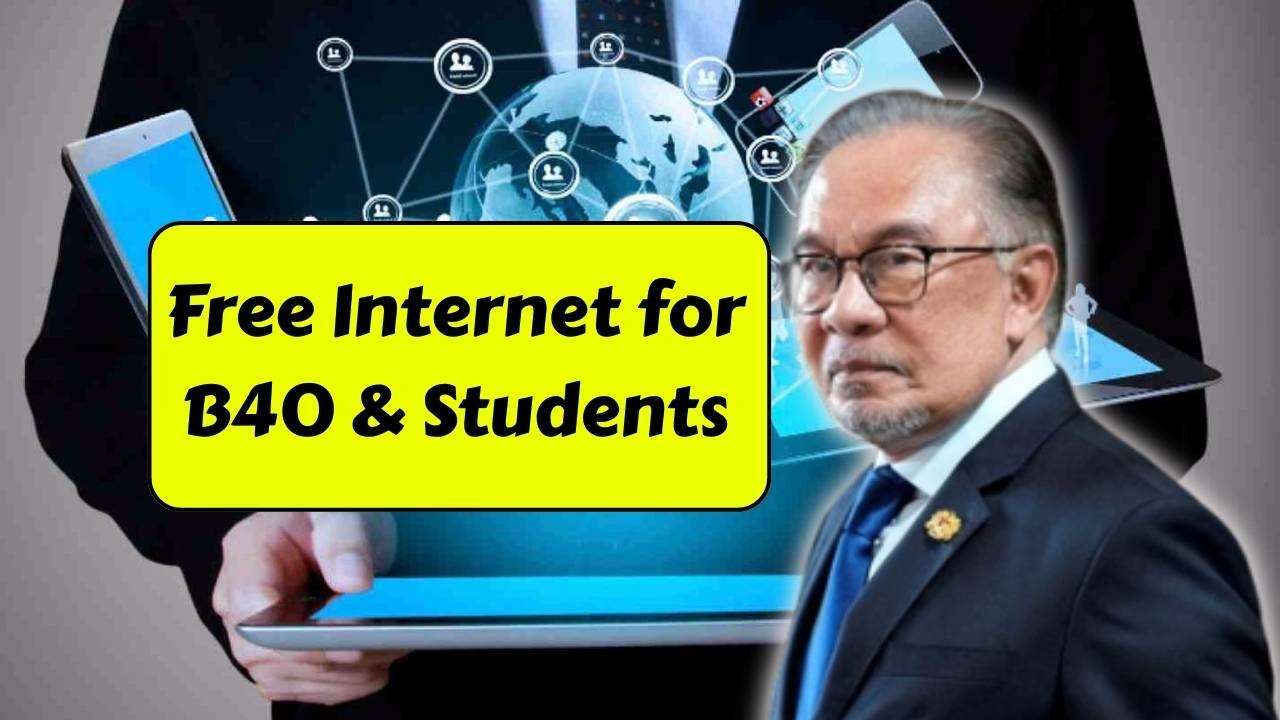Join on WhatsApp
Get the latest updates directly on WhatsApp – motivation, news & more!
Access to the internet has become a necessity in today’s world. From online education to digital banking and job opportunities, connectivity plays a central role in daily life. In Malaysia, a large portion of society still struggles with the cost of internet services, especially among the B40 group and students. Recognising this challenge, the government has introduced the Malaysia Digital Inclusion Program 2025, an initiative that aims to provide free internet access for these communities.
Bridging the Digital Divide
The term digital divide refers to the gap between those who have reliable access to technology and the internet, and those who do not. In Malaysia, the digital divide is most visible among lower-income families and students from rural areas. Without proper connectivity, many are unable to participate in online learning, upskilling programs, or even access essential government services. The Malaysia Digital Inclusion Program 2025 has been designed to reduce this gap and ensure equal opportunities for everyone.
Who Benefits from the Program
The initiative is targeted at two main groups: the B40 community and students. The B40 represents the bottom 40 percent of income earners in Malaysia. Many in this group struggle with monthly expenses and cannot afford high internet bills. For them, free internet will reduce financial pressure and open up new possibilities for improving their quality of life.
Students are another key focus. Over the last few years, online education has become a standard part of learning. However, many students, especially those from rural schools and low-income families, have faced difficulties attending virtual classes. By offering free internet, the government ensures that no student is left behind in their education journey.
How the Program Works
Under the Malaysia Digital Inclusion Program 2025, eligible households and students will receive free internet packages. These packages are expected to cover basic data usage for learning, communication, and essential services. The government is working with major telecom operators to ensure wide coverage, including rural and remote areas. In addition to free data, some plans may include affordable devices such as tablets or laptops under a subsidy scheme, ensuring that beneficiaries can fully make use of the internet.
Impact on Education
One of the most significant benefits of the program will be in the education sector. Students from low-income backgrounds often rely on mobile data shared among family members, making online learning difficult. With free internet, they can access e-learning platforms, attend virtual classes, and download resources without interruption. Teachers will also find it easier to connect with their students, bridging gaps in communication and ensuring better learning outcomes.
Economic Opportunities for the B40
Beyond education, free internet also creates economic opportunities. Many small entrepreneurs in the B40 group depend on social media and e-commerce platforms to sell products. With reliable internet access, they can reach a wider market, expand their businesses, and improve household income. Job seekers can explore online platforms for work opportunities, while those interested in freelancing or remote work can now participate in the digital economy.
Supporting Rural Communities
Rural areas in Malaysia often face the biggest challenges in connectivity. By ensuring free internet coverage in these regions, the program empowers rural communities to access healthcare information, government aid services, and online banking. This step not only reduces inequality but also strengthens Malaysia’s overall digital readiness.
Long-Term Vision
The Malaysia Digital Inclusion Program 2025 is not just about providing free internet for a year or two. It is part of a broader vision to make Malaysia a fully digital-ready nation. By giving citizens the tools and access they need today, the government is investing in a future where every Malaysian, regardless of income or background, can thrive in the digital economy.
Conclusion
The introduction of free internet for B40 families and students under the Malaysia Digital Inclusion Program 2025 is a step toward greater equality and progress. It addresses the digital divide, enhances educational opportunities, and opens economic doors for those who need them most. With this initiative, Malaysia moves closer to becoming an inclusive, connected, and digitally empowered nation.


